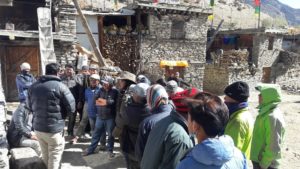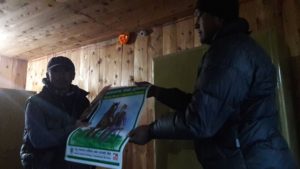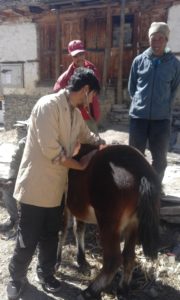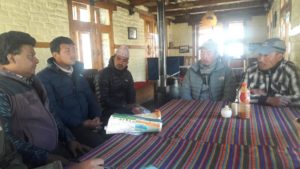General Equine Health Camp in Manang
Manang, one of the coverage areas of AHTCS Working Equine Welfare Project (WEWP), is a famous trek zone of Nepal with high numbers of national and international tourist visiting the area every year. It is mostly famous for the Thorung LA pass to Mustang, Tilicho Lake, Majestic view of the Himalayas and many other lakes. The main occupation of the people there is trade and hotel. Manang is the name of district but it also has Manang town. Chame is the headquarters of Manang where various government offices are located. According to a data recorded earlier, total equine population of Manang was about 1400.
A team of AHTCS Working Equine Welfare Project (WEWP) staffs visited Manang from 29 October to 5 November, 2017 in order to meet the following objectives:
- To find the number of equine population in the region
- To disseminate equine welfare message through Micro-session
- To provide in hand experience to the government technicians
- To provide emergency treatment to the animals
- To assess the general health condition of the equines over there
A total of 210 equines including horses and mules were examined and dewormed during the health camps organized in various places of Manang such as Manang, Dharapani, Homde and Vhraka. Many cases of colic, wounds, lameness, respiratory diseases, eye problems, mouth/gums/teeth problems found and treated. The AHTCS team was led by Dr. Niran Adhikari and welfare facilitators Keshar Bahadur Raibhat and Bimal Lamichhane who were assisted by two local facilitators Kumar Gurung and Snowmonkey Mukhiya in organizing health camps and meeting with local stakeholders. Two government technicians Gopal Gurung, Dharapani and Prem Bahadur Magar (Manang) were provided in hand training experience regarding equine behavior, handling/restraining and basic medicine. Equine welfare messages were disseminated to 45 equine owners through posters during the micro-sessions. Kisaan Dairy published by AHTCS was also distributed to the equine owners and handlers which contains basic information about equine diseases and primary treatment.




